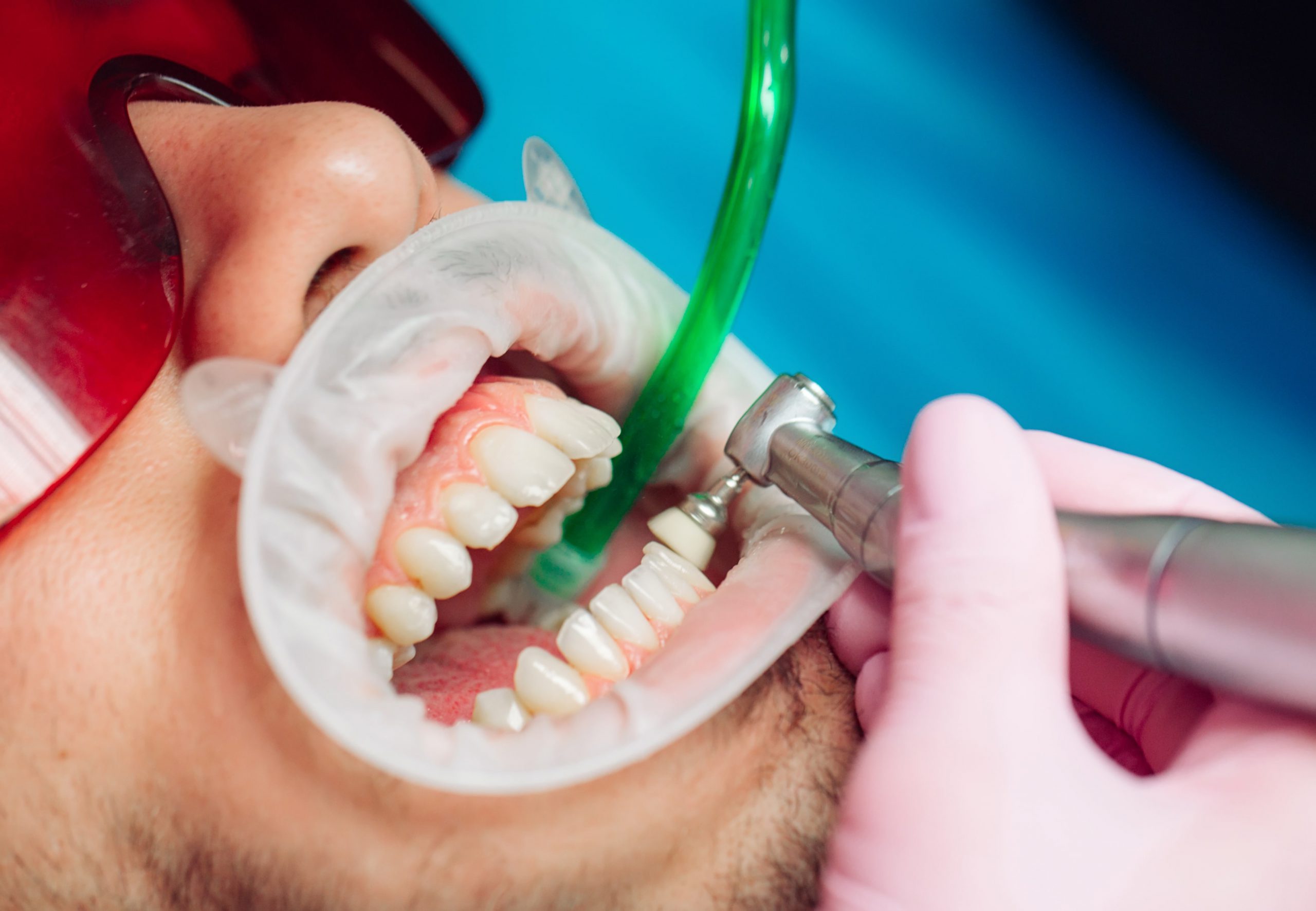

Healthy gums, healthier the teeth!
It all starts with plaque and can make you reach to a stage where you need dentures. The most common gum infections dawn with the build-up of deposits like plaque and tartar along the margin of the gums. You may have noticed a white soft layer covering on your teeth. This is plaque.
Plaque is nothing but a soft, white bacteria-filled substance while calculus or what we commonly call as tartar is a hardened version of the same thing. When you don’t take care of this build-up, your gums tend to become inflamed and swollen. You may also see bleeding from the gums while brushing or eating indicating unhealthy gums. This is called ‘gingivitis’ or more commonly gum infections.
When ‘gingivitis’ goes untreated, it can lead to an advanced stage of gum disease known as ‘periodontitis’. In this stage, the damage starts to become irreversible. The gums start to slip down, the bone holding the roots of the teeth becomes weaker, and teeth start to loosen. Additionally, you also suffer from bad breath. Which sometimes leaves you in a confused state of mind as to why or what's the reason of your bad breath? So now you know this could be the one.
Eventually, teeth may have to be removed. Gingivitis and periodontitis are the most common gum infections in the mouth. They occur due to the formation of a pocket between the teeth and gums, which acts as a breeding ground for bacteria. Gum inflammation can also be a result of certain medical conditions or side effects of some drugs.

Remember gum infections happen because you let it happen! Its totally avoidable if you follow the 5 steps of oral hygiene regime and get a teeth scaling done every 6 months by a professional dentist.
The saliva, bacteria, and proteins in our mouth form a thin layer that covers our teeth. When you eat food, tiny particles acids and sugars from the food stick to this film, creating a buildup on the teeth known as plaque. The bacteria and micro-organisms from this plaque ferment the sugars and release acids than can cause gum disease and tooth decay.
Although everyone has a tendency to develop plaque. How much ever thoroughly and regularly you brush and floss, these organized colonies of bacteria still remain in our mouth in the form of a film on the surface of the tooth.
This biofilm starts absorbing the mineral content of saliva. Through this absorption of calcium and phosphorus from the saliva, the biofilm is transformed into a hard substance known as calculus, commonly known as tartar which can be only removed with professional teeth cleaning by a dentist.
No! Then what is the teeth cleaning procedure?
All dental treatments start with one round of cleaning. It is a procedure done for gum disease which includes removal of the plaque and tartar build-up from the surface of the teeth. Root planing is making the exposed root surfaces smooth so that the detached portion of the gums can reattach properly. Removal of these unwanted deposits reduces the swelling of the gums. Subsequently, after properly maintaining the dentition the gums will revert back to normal.
In this procedure, the dentist uses a ‘scaling tip’ to physically remove plaque and tartar build-up from all the surfaces of the teeth. The dental tips used to clean the surfaces of the teeth are efficient in flushing out the food debris stuck between your teeth, and removing the plaque and biofilm from the areas where your brush is also unable to reach.
Teeth cleaning is not a painful procedure at all. Sometimes there can be bleeding since your gums may be very weak. You may need topical anesthesia or anesthetics gels if you have severely swollen gums.

This procedure is completed 20-30 minutes depending on the severity of the build-up. It may even take 1-2 appointments incase you have a lot of stains on your teeth. Cleaning is always followed by a polishing procedure to make the surfaces of the teeth smooth. This reduces the chances deposits getting built again and again.
You can expect minor bleeding for a few days after the procedure. The treatment will be successful only if you maintain your oral hygiene so that the health of the gums can be restored. They may prescribe an antiseptic mouthwash if required. Dentists recommend getting scaling done every 6-12 months to prevent gum disease.
Dr. Amrita Jain is a practicing dental surgeon since 4 years. She completed her B.D.S in 2016 and was has been a rank holder throughout her course. She suggests “Holistic dentistry is the best dentistry”. Her treatment line follows a conservative pattern which means saving a tooth is of utmost priority and preventing your teeth from getting decayed rather than curing it with a root canal treatment. She inculcates the same while consulting her patients.Apart from her interest in clinical practice, she has developed interest in research and writing over a period of time. She states “It is my clinical experience that motivates me to write and spread dental awareness”.Her articles are well researched with a combination of technical knowledge and clinical experience.
scanO is an AI ecosystem transforming oral health for patients, dentists, corporates, and insurers worldwide

© 2025 Trismus Healthcare Technologies Pvt Ltd